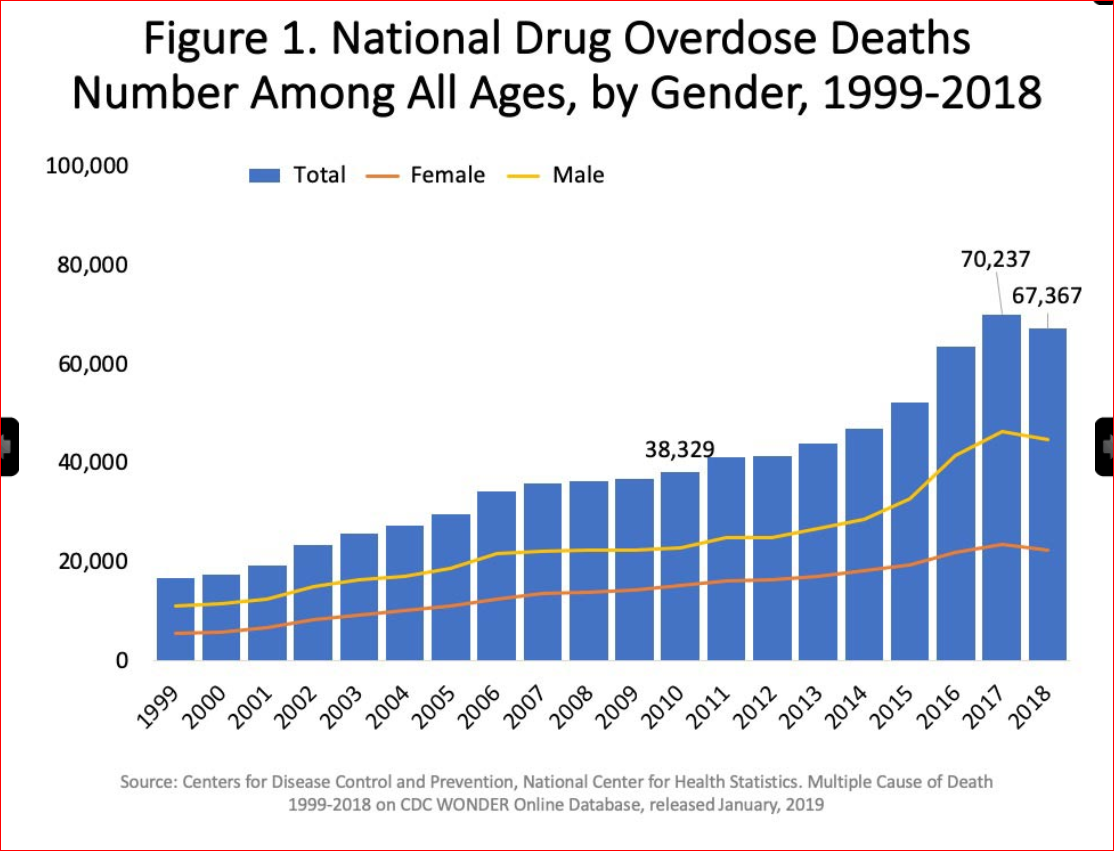Before we get into the detailed discussion of the background and challenges associated with this crisis, we should first talk about what you need to do to protect yourself.
The most important single thing you must do: understand and demand the proper treatment of pain. Otherwise, you might unnecessarily suffer. Much worse, if you and/or your doctor don’t handle opioids correctly, you might become one of the tens of thousands of Americans who will die from overdose between now and the Spring of 2021.
Let’s get specific about what you should demand out of your healthcare providers:
- Get treatment for your pain but know your alternatives. There are lots of different causes and kinds of pain. Some pain is short term and some chronic. There are lots of different classes of pain-lessening treatments. Opioids are sometimes very useful, but they are usually just one among other options or pain treatments. If a doctor or their surrogate is seeing you for a painful condition, require her to discuss all reasonable options in your pain management strategy.
- Remember, your doctor is the doctor; make them do their job. You should know that many of these ‘doctor stand-ins’ are unlikely to know how and when to use opioids as well as your doctor. Look out for signals that they aren’t comfortable with Opioids. If you don’t have confidence that your ‘provider’ has good knowledge or skill to treat your pain, demand to see their supervising doctor. After all, you’re paying his bills, and they are taking your money to treat your painful condition.
- Doctors, Nurse practitioners, and Physician assistants are collectively referred to as “Providers.” The difference between their training and qualifications to ‘practice medicine’ is immense. However, especially in primary care, physician surrogates often will function as if they are equally capable. If you are being seen by someone other than a doctor, that ‘provider’ should tell you their qualifications. If they don’t, ask. Many doctors use Nurse Practitioners and Physician Assistants to treat patients in their place.
- Treatment with “pain pills” without careful consideration of the risks and benefits is reckless. Your provider might decline to prescribe opioids outright, without any discussion at all- “We just don’t do that.” On the other extreme, she might give you an opioid prescription without thinking about, or even talking to you about the risks. Remember, when they took your money and agreed to see you for a painful condition, they agreed to properly and professionally address your pain. That doesn’t mean that you get opioids and it doesn’t mean that you don’t. If your doctor doesn’t talk to you about your options, that is a big red flag!
- If opioids are the recommendation, demand Informed Consent. [6] Informed consent means that the upsides and the downsides of a particular treatment have been explained to you and that you have been given the chance to accept or decline. Why wouldn’t you get Informed Consent for treatment that has led to the death of almost 600,000 people? If your doctor doesn’t take to offer informed consent, don’t accept an opioid prescription. It really isn’t too much trouble. Remember, no one with opioid addiction thought that they were going to get addicted because of pills that their doctor gave them a lot more. Stay tuned!
Important references and additional comments:
- https://www.hhs.gov/opioids/about-the-epidemic/index.html
- https://www.drugabuse.gov/related-topics/trends-statistics/overdose-death-rates
- https://www.cdc.gov/drugoverdose/epidemic/index.html
- 68,000 Americans died from opioid overdose in 2018. That was the first annual decrease in these deaths (4%) since 1999. https://www.drugabuse.gov/related-topics/trends-statistics/overdose-death-rates
- https://www.drugabuse.gov/news-events/nida-notes/2018/07/opioid-use-disorders-increased-prescriptions-treatment-did-not-keep-pace
- https://www.ama-assn.org/delivering-care/ethics/informed-consent.
If you have Opioid Use Disorder or are at high risk for opioid addiction, opioids should be a consideration of only the very last resort.

